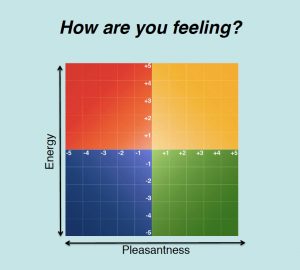During the 2016-2017 academic year, approximately 40 members of Gaynor’s community worked together to develop the school’s next
five-year strategic plan. Among several focus areas identified, one included Gaynor’s social and emotional learning approach. In order to choose which approach would be most beneficial to the community, Gaynor’s psychology department canvassed other schools in Manhattan and conducted extensive research. Ultimately, the department chose the
RULER approach to Social and Emotional Learning, developed by Marc Brackett, David Caruso, and Robin Stern at Yale University.
RULER stands for:
–Recognizing emotions to obtain valuable information about themselves and their environment.
–Understanding the causes and consequences of emotions to predict behavior
–Labeling emotions to describe feelings precisely
–Expressing emotions to communicate effectively and in socially appropriate ways
–Regulating emotions to promote learning and personal growth, including healthy relationships
Research has shown that as the classroom climate becomes more supportive, students’ academic performance can improve and they can show greater interest, enjoyment, and engagement overall. The program integrates into all content areas including language arts, social studies, math, and physical education and involves a three-year sequence. During the first year, students will develop key RULER skills, and learn about The Anchors of Emotional Intelligence.
The Mood Meter, pictured above, is just one tool students will use as the program rolls out. According to the Yale Center for Emotional Intelligence, the Mood Meter helps both students and educators become more mindful of how their emotions change throughout the day and how their emotions in turn affect their actions. Students will learn that it is acceptable to be anywhere within the quadrants, but will also learn how to regulate these different emotions.
We sat down with Director of Psychology Dr. Clare Cosentino and Assistant Head of School Jill Thompson to learn more about RULER, and what it means for Gaynor – now and in the future.
Out of all the various programs researched, why did you choose RULER?
The psychology team researched the social-emotional learning programs and selected RULER because it’s a whole school approach that focuses on positive social, emotional, and cognitive development. The program is rooted in social intelligence theory and research on both child and adult development. It is recognized by the Collaborative for Academic, Social, and Emotional Learning (CASEL) as a SELect program because of its strong evidence base. It has been shown to reduce problem behavior and enhance emotional intelligence and academic achievement.
Tell us about the specific work you’ve been doing recently to implement RULER at Gaynor?
We have introduced all faculty and staff to RULER and emotional intelligence. Faculty and staff worked together to create a charter about how they want to feel at work and which action steps will help to create those feelings. Teachers are now creating charters with students, which will help guide them in their classrooms. At the Parents’ Association meeting in November, RULER and the Gaynor charter will be presented to parents.
Why is RULER being rolled out in phases at Gaynor?
RULER is meant to be introduced in three phases in order to provide time for all stakeholders (faculty, staff, and board members) to understand the different anchors of emotional intelligence.
How is the program being differentiated for students of every age?
Pacing, language, and learning activities are differentiated based on developmental needs. An example of this is that some classes need more explanation and time to explore their feelings.
How can parents support Gaynor’s work with emotional regulation at home and on the weekends?
Parents can help their child by modeling and prompting mindfulness to accurately describe feelings and connect strategies that help manage and support those feelings.

